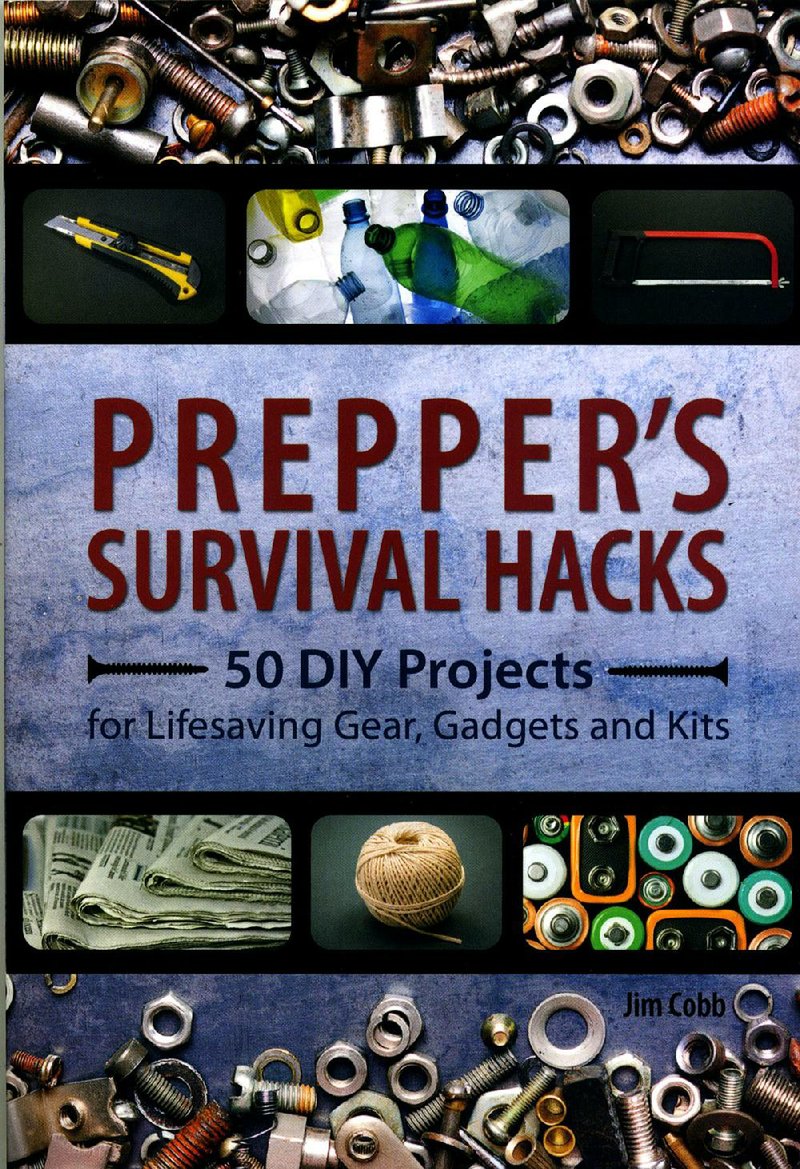Prepper's Survival Hacks: 50 DIY Projects for Lifesaving Gear, Gadgets and Kits by Jim Cobb (Ulysses Press paperback, September), 144 pages, $15.95
If we truly are not worried about how long the grocery store's glass doors would hold back a horde of zombies, is there any reason to buy this book?
It might help us survive our next session with the grandkids at Camp Grandma.
Most of these little projects also would be fun to do with a Scout troop -- although everyone's odds of survival would improve if certain Scouts never found out they could be setting fire to crayon "candles." Or that Jim Cobb's clothespin "alarm trigger" would also work on an improvised explosive device.
What is a "hack"? We read this word often.
Hack used to indicate an inelegant instance of chopping or a writer sadly lacking in self-respect but sometime in the past century it came to mean breaking into computers or their networks. Lately we also have tips for solving personal problems described as "life hacks."
In this book, hack merely means making or doing things without paying someone to make or do them for you.
What sort of things?
Most are afternoon craft projects: squishing petroleum jelly-infested cotton balls into minute containers; pouring molten wax into egg cartons; gluing teeny-tiny seeds to strips of toilet paper; spiraling corrugated cardboard inside empty cat-food cans .... Delight for devotees of miniaturization.
Many of the projects use up little bits of household this or that -- Altoids tins, vermiculite ....
In other words, how to make junky flammable objects that will wind up lost amid the piles of stuff in your garage?
Mostly. But Cobb also describes how to turn a five-gallon bucket into a mousetrap. How to use an AAA battery in a device built for AA batteries. "Hardening" your entry doors by replacing a few of the short screws currently holding up the hinge plates with really long ones. If that doesn't crack the door frame, you get a stronger door.
His tone is humorous and sometimes wry. For instance, his office emergency survival kit doesn't include duct tape, rope, a hatchet or Visqueen, which is probably just as well, but it does include "boredom relievers" -- novels, books of crossword puzzles. And he tells us how to keep our extra cord organized by wrapping it around all the $5 and $10 gift cards we won't be able to redeem at the nation's chain retailers once civilization collapses.
A few chapters aren't about projects so much as common-sense advice: You could be clipping coupons; you could be scanning important documents and priceless family photographs and transferring them to a password-protected thumb drive. He mentions a thumb drive called IronKey that is physically hardened such that if someone muffs your password, this thumb drive initiates a self-destruct sequence.
Sounds good ... until you imagine your house collapsing into the smoking abyss opened by the earthquake and taking with it your wisely hidden box of index cards upon which you faithfully recorded all 45 of your passwords.
What a smart way to ensure that the last remaining record of your priceless family photos can't fall into the hands of anyone who can't key in your password -- for instance, you.
That seems a bit lacking in foresight.
In his defense, we might not be the best readers to make use of that advice. But this book was fun for us.
And it certainly provides food for contemplation that so many seem so recently concerned about some future fallout from some failure on their part to see something coming. Why now? Life has always been precarious. It has always been a good idea to know how to do stuff.
Who is the author? Cobb has written several books for those who hear the distant drumbeat of disaster, including Prepper's Home Defense. His bio says he and his family reside "in the upper Midwest" -- somewhere. But you could probably narrow that down to southern Wisconsin or upper Illinois based on his website, survivalweekly.com, which includes his fee for public speaking outside that region.
ActiveStyle on 10/19/2015
